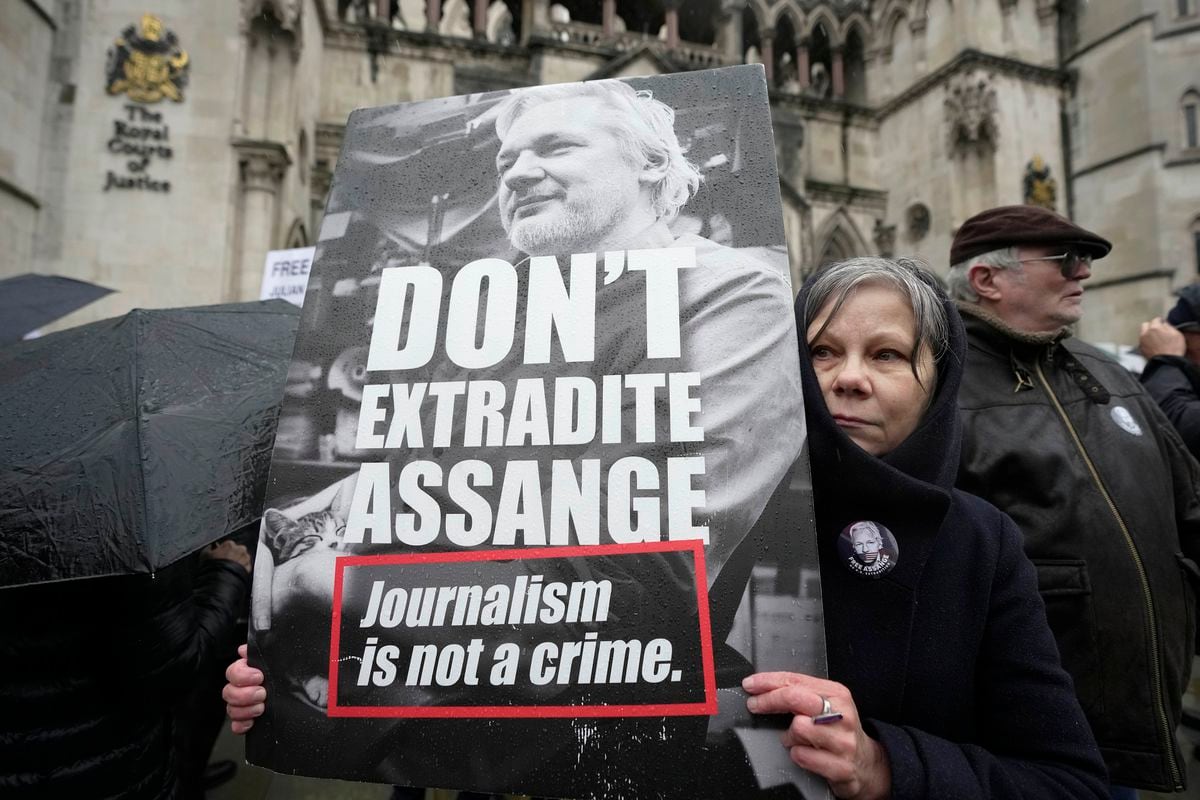Judges Victoria Sharp and Jeremy Johnson, of the High Court of Justice of England and Wales, have heard, at least in part, the clamor in defense of press freedom and will allow Julian Assange to appeal his extradition order to British justice. to the United States if Washington does not offer three extraordinary guarantees.
The court considers that Assange has a solid legal basis to appeal his extradition in three specific aspects.
The United States Government, the verdict says, must ensure that the freedom of expression contemplated in the first amendment of its own Constitution will be protected;
that the Australian editor will not receive an unfair trial, with all guarantees, for not having American nationality;
and that the death penalty will not end up being imposed.
In this way, the court has admitted three of the nine arguments put forward by the legal team of the Wikileaks co-founder in the hearings in mid-February to stop his delivery.
Sharp and Johnson have given lawyers representing the US government three weeks to offer those guarantees.
If he does not do so, Assange will be able to continue with his extradition appeal.
The case against the co-founder of Wikileaks, who is still locked up in a maximum security prison on the outskirts of London, will continue in this way for at least a few more weeks and his delivery will be paralyzed for the moment.
The wife of the Australian editor arrived shortly after ten in the morning (eleven, in Spanish peninsular time) to pick up the text of the sentence.
The thousands of activists, governments and institutions that had expressed their support for the Australian editor and demanded his release have breathed a little easier, although they continue to denounce the injustice of keeping him imprisoned.
Dozens of them had gathered since early Tuesday morning outside the courthouse in London.
The decision to give the green light to Assange's extradition was adopted in 2022 by the then British Minister of the Interior, Priti Patel, once the Supreme Court approved the guarantees offered by Washington on the prisoner's safety, and on the measures that would be adopted to prevent him from ending his own life.
It was in the hands of judges Sharp and Johnson to grant the Wikileaks editor one last opportunity to appeal against his surrender to British justice, as they have finally decided.
The US Government accuses Assange of 17 crimes against the Espionage Act and one for computer interference.
The Australian editor would face 175 years in prison for the leak of more than 250,000 classified documents from the US State Department in November 2010. EL PAÍS was one of the media that participated in that concerted effort to publish these papers.
Assange's cause has become the worldwide cause for press freedom.
The pressure of the campaign in favor of her release was not so much directed towards the judges who have been passing a hot iron between them, but towards the American and British governments, which have in their hands the possibility of stopping the persecution.
Assange has been imprisoned in the Belmarsh maximum security prison for almost five years.
His health has deteriorated drastically, to the point that it was impossible for him to attend, not even via videoconference, the two days of the hearing on his extradition that were held in London in mid-February.
Hundreds of activists in support of the editor and press freedom demanded his release in front of the Superior Court of Justice building.
The wife of the most famous prisoner in recent years, Stella Assange, already told EL PAÍS, in an interview hours after the court hearing concluded, that extradition to the United States was a risk for the life of the co-founder of Wikileaks. .
“He may die, because he could end up being sentenced to the death penalty.
The British Government itself has admitted that it is incapable of guaranteeing that they will not kill him,” said the lawyer specialized in human rights, who has two children, ages five and six, with Assange.
Follow all the international information on
and
X
, or in
our weekly newsletter
.
Subscribe to continue reading
Read without limits
Keep reading
I am already a subscriber
_

